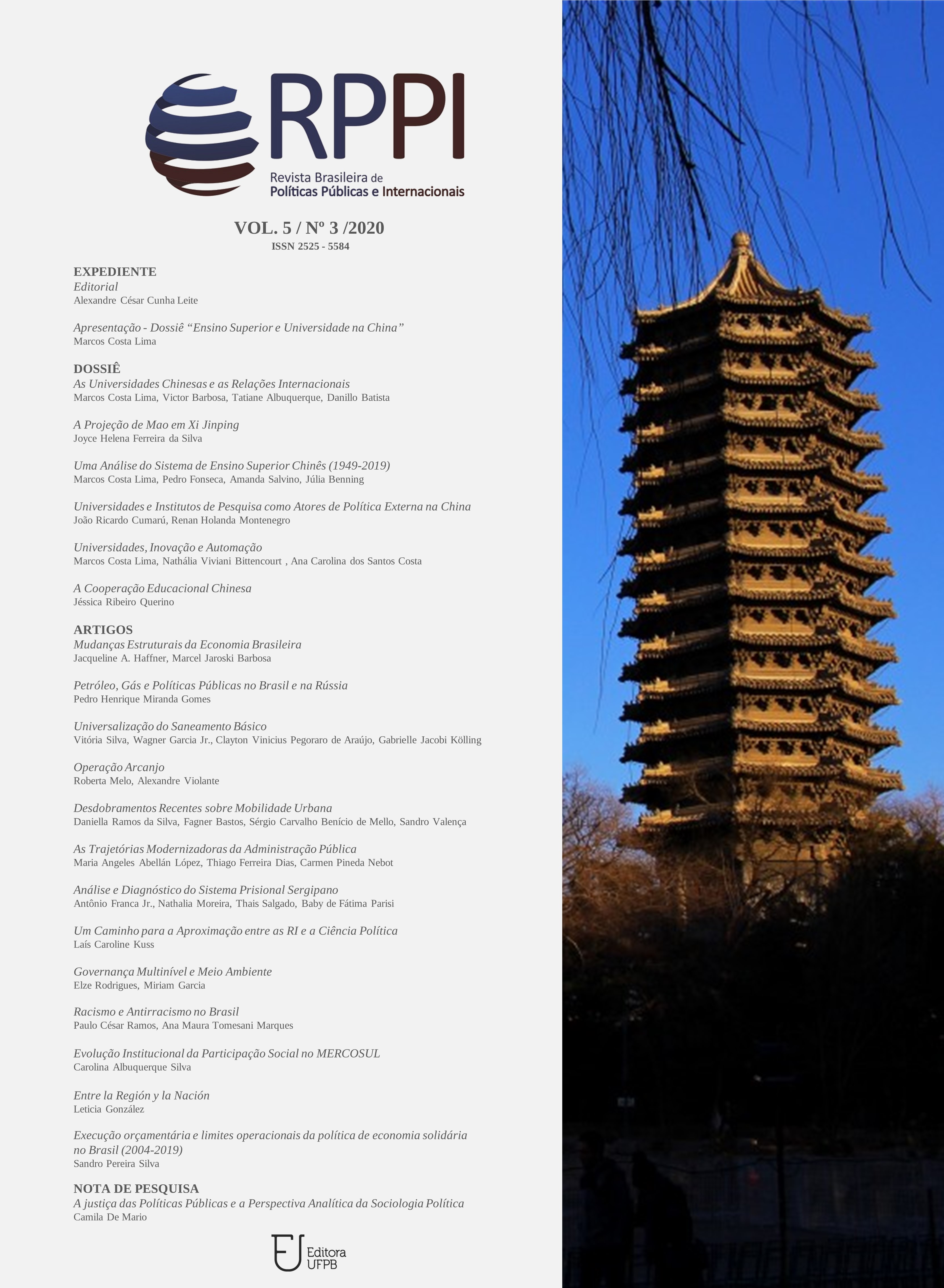Recent Developments on Urban Mobility
a comprehensive review
DOI:
https://doi.org/10.22478/ufpb.2525-5584.2020v5n3.50610Keywords:
.Abstract
The theme urban mobility has been approached with relevance in Brazil, where the National Urban Mobility Policy (PNMU) was enacted in 2012 — Law n. 12,587 / 2012, a public effort for its improvement. Faced with the problems of urban mobility, it seems to be of great interest to observe how the issue is being addressed after the PNMU. Therefore, the research questions that guide these works are: • What is the situation of the debates about urban mobility in Brazil, after the implementation of PNMU — Law n. 12,587 / 2012? • On urban mobility in Brazil, what issues still need to be addressed? To answer these questions, an integrative review of articles published in the SPELL platform (Scientific Periodicals Eletronic Library) was carried out from the year 2012. The research categorized urban mobility into dimensions - public, private and social — and themes — accessibility, market, new habits, planning, safety and sustainability. The results demonstrated that the debates are advancing in the country, but there are still specific issues that need to be better addressed, such as the need for cultural change — required for the adoption of new modes, such as bicycling and pedestrianism.
Downloads
Downloads
Published
Issue
Section
License
Autores que publicam nesta revista concordam com os seguintes termos:- Autores mantém os direitos autorais e concedem à revista o direito de primeira publicação, com o trabalho simultaneamente licenciado sob a Licença Creative Commons Attribution que permite o compartilhamento do trabalho com reconhecimento da autoria e publicação inicial nesta revista.
- Autores têm autorização para assumir contratos adicionais separadamente, para distribuição não-exclusiva da versão do trabalho publicada nesta revista (ex.: publicar em repositório institucional ou como capítulo de livro), com reconhecimento de autoria e publicação inicial nesta revista.
- Autores têm permissão e são estimulados a publicar e distribuir seu trabalho online (ex.: em repositórios institucionais ou na sua página pessoal) a qualquer ponto antes ou durante o processo editorial, já que isso pode gerar alterações produtivas, bem como aumentar o impacto e a citação do trabalho publicado (Veja O Efeito do Acesso Livre).




_.jpg)






.png)


.jpg)
_.png)
